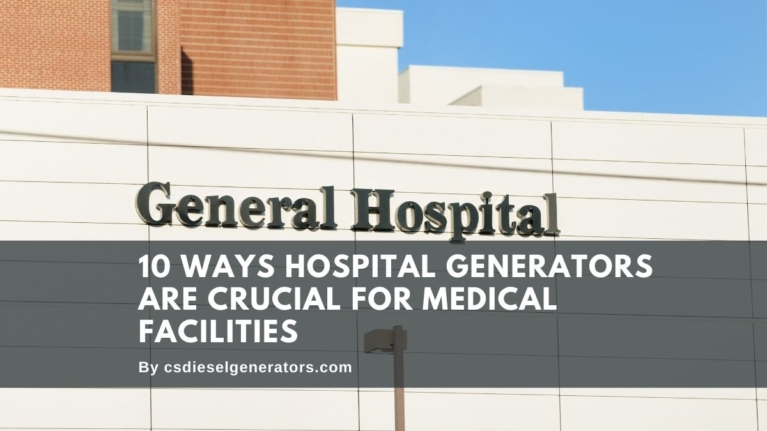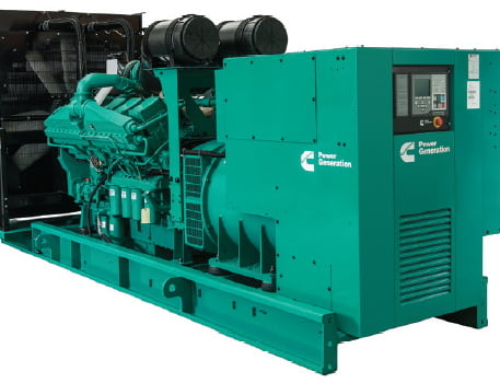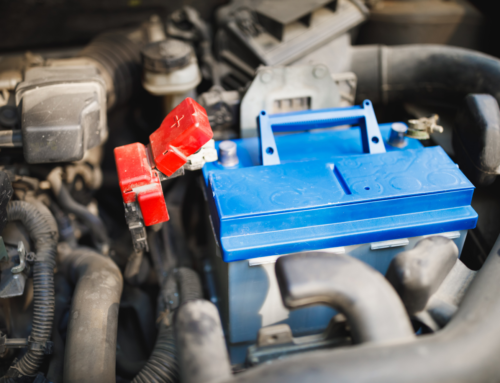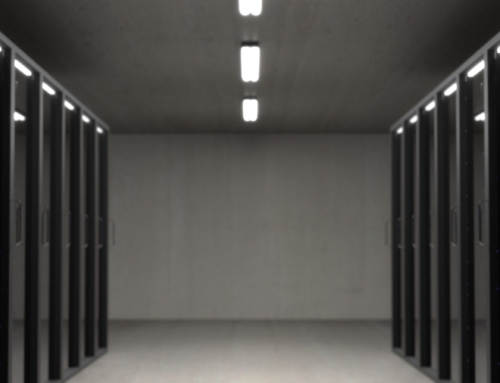The relief of the electricity returning after a power outage is monumental. But when you are in hospital, you cannot wait for the power to come back.
There are many benefits to owning a backup generator, like a diesel generator. But for medical facilities, a power cut is more than an inconvenience. It can be a matter of life or death.
The diesel generator market is estimated to reach a whopping 16.85 billion by 2027. And it is not hard to see why, especially when it comes to emergency power in hospitals.
Every state requires that hospitals have generators. But we do not always recognize why until we need them.
Keep reading for ten reasons why hospital generators are crucial for medical facilities!
1. Powers Life-Saving Machinery
When there is a power cut, sometimes you cannot work. But for healthcare facilities, staff cannot put work on hold. They need backup power to keep critical care machines going.
There are so many machines that depend on power. This includes defibrillators needed for emergencies. And patients in intensive and pediatric care whose ventilators are keeping them alive.
Every second of no power risks a severe health emergency. Patients may need to be evacuated or transferred if a power outage threatens their care.
2. Preserves Medical Samples and Medicines
Many medicines need to be stored in freezers or fridges. An example is the temperatures COVID-19 vaccines need to prevent spoiling. If power fails, then staff have to give the vaccines immediately or throw them away.
Emergency power protects medical supplies. This does protect not only patient care but also prevents the loss of thousands of pounds. The biopharmaceutical industry also utilizes generators for this reason.
Blood samples and other medical samples that need to be kept cool are also at risk of degradation if power cuts. This delays patient care as staff will need new samples. And tests may not come out correctly.
3. No Food Waste
It is not just medical supplies that are at risk of spoiling if there is a power outage. Generators also prevent food wastage and money loss!
After four hours of no power, food can be unsafe to consume. Imagine how much wastage that is for a hospital that feeds all patients.
4. Stops Disruption to Patient Care
Every state has to adhere to generator standards. All hospital generators have to meet the National Fire Protection Association’s requirements. Such as the Life Safety Code (NFPA 101). This ensures reliability and no interruptions to patient care.
Emergency power has to kick in within ten seconds. Some generators do this immediately with no delay. Without this quick response, many disruptions would occur.
Not only would the focus shift from all patients to those whose machines have failed. But operations, those in labor, x-rays, and other daily hospital events are disrupted.
CLICK HERE TO CONTACT OUR EXPERTS
5. Reduces Adverse Events
Many adverse events can be prevented with reliable hospital generators. When the lights go out, patients can suffer from falls and other injuries. If patients are on medical watch, there is also an increased risk of suicide.
There is a risk of wrong-site surgery, transfusion errors, or medication errors. HVAC systems will shut down, which can cause adverse impacts such as heatstroke.
Staff are also at risk. Generators prevent elevator issues and risk of falls. A power outage can cause more stress, too, because of the trauma a power outage and its adverse effects can cause.
6. Saves Data
Hospital generators help frontline work and also reliably serve administrative tasks. Power outages mean computers do not shut down properly. This can cause corrupt files or files not saving.
In a medical facility, loss of data is hugely problematic. Medical records are kept online, so it can be hard to treat the patient without access. And if there is a loss of data, this can cause problems even once power is restored.
7. Communication Continues
Healthcare facilities depend on communication systems internally and externally. Internal systems include signaling systems that alert medical staff to patient issues. Communication between different departments can also halt during power cuts.
External communication includes people calling in emergencies and carers calling in with concerns.
Hospital generators prevent these issues if there is a power outage. And staff can effectively maintain communication, even during extreme weather conditions.
8. Long-Lasting Power
During hurricanes and other extreme weather conditions, power outages can last for days. But hospital generators can maintain power without interruption. Furthermore, hospitals need fuel on-site to keep generators running for 96 hours.
9. Patient Comfort
A smooth patient care experience benefits everyone. Patients will return to a healthcare facility if they have a positive experience.
Hospital generators are crucial so that healthcare facilities can maintain their comfort setting. Everything from HVAC system failure to water pressure loss reduces comfort levels. Patients and staff will not be able to maintain their hygiene either when the power goes out.
Diesel generators are low noise emitting, which reduces distractions for staff and patients.
10. Versatile Applications
Hospital generators can support vast amounts of equipment and devices. A diesel generator does this with high efficiency and low fuel consumption. A hospital needs this to sustain power for as long as a power outage lasts.
Generators have load management and output altering. Plus, you can install control systems to direct power as needed. Hospital generators are the most reliable generators out there for this reason.
Hospital Generators Are Crucial
Hospital generators are required, but they are also essential. The generators provide support without worry about what power source to prioritize.
The safe, effective, and powerful machines do more than keep patient care moving. The generators keep the whole system running. And they prevent many direct and indirect issues power outages can cause.
It is essential healthcare facilities have the right generator. Hospitals need large generators. In contrast, other healthcare facilities may find a smaller generator more suitable.
Are you interested in learning more? Contact us for more information on the generators we have available!






![How to Leverage Remote Monitoring for Your Industrial Generator?[2024 guide]](https://csdieselgenerators.com/wp-content/uploads/2024/03/Remote-Monitoring-500x383.png)
